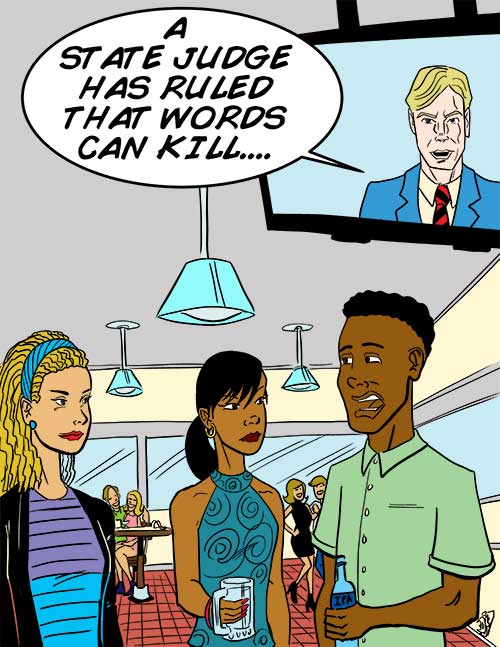
People have always believed that words have power, but until the case of Commonwealth vs. Michelle Carter, it was not known that words uttered in a crisis could cause someone to be convicted of involuntary manslaughter. This case raised the complex question of what duty of care everyone owes to his or her fellow human being.
American jurisprudence places extraordinary emphasis on individuality and freedom from liability for concern for others. There is no legal obligation to aid a neighbor in distress. In fact, at one time those who voluntarily provide aid to someone in danger could be sued if the intervention was negligent and caused greater harm. Now the so-called Good Samaritan Laws protect the intervenors from liability for harm caused under stress.
Although there is not a legal requirement to come to the rescue of someone in a life threatening situation, society respects those who do, and there is disdain for those who fail to respond. An often-repeated example of callous indifference to a neighbor’s cries for help is the case of Kitty Genovese in New York in 1964. While numerous neighbors heard her screams for help during an assault that proved to be fatal, no one called the police.
None of Genovese’s neighbors were legally liable for failing to act. Just being a neighbor does not create a duty of care of sufficient significance. However, once the law perceives that such a duty exists, the obligation to provide aid will arise. A man standing on a pier can passively watch someone struggling in the water below and fail to throw a life vest that is available nearby. If the troubled swimmer is a stranger there is no liability. But if the swimmer is a spouse, his or her child or a sibling, then the legal issue changes.
The district attorney decided to prosecute Carter for encouraging the suicide of Conrad Roy III, even though she was many miles away at the time of his death and her involvement was entirely verbal. This raised the dramatic issue of whether words alone could kill. Carter’s lawyer wisely refused a jury trial, and chose instead to place the case before a judge. There was no binding legal precedent of a defendant being found guilty of manslaughter solely on the basis of the power of words.
Without the personal relationship between Carter and Roy that created a duty of care there would probably be no case. They were boyfriend and girlfriend. It is reported that they once had a suicide pact. While speaking from a distance on cellphone, Carter urged Roy to get back in his truck, which was filling with lethal carbon monoxide fumes. She did not call the police or Roy’s family to rescue him.
If this conviction stands on appeal, the Massachusetts Supreme Judicial Court will have to define a more nuanced definition of the duty of care; otherwise a crowd of onlookers could be charged with yelling “jump” to encourage a man poised perilously threatening suicide from the upper balcony of a building.
What duty of care do Americans now really owe to one another? Conservatives in the U.S. Senate propose a health plan that will deny care to 22 million citizens, and many senators are fine with that. There now seems to be even less concern for one another than there was for Kitty Genovese.






